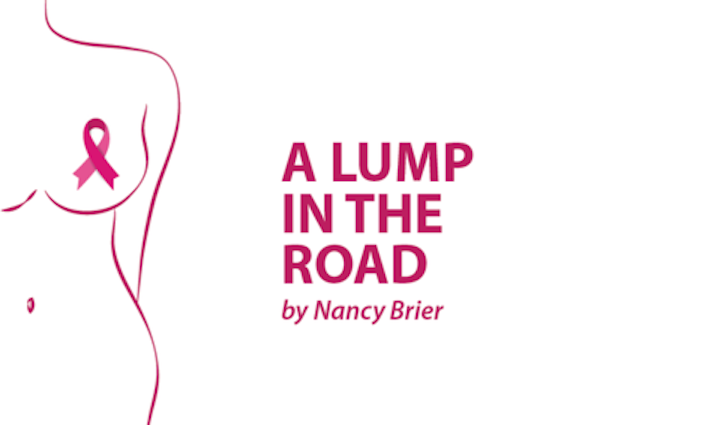This post was originally published on this site
I remember when my daughter performed at a talent show at her school. I’d just had my fourth round of chemotherapy, and my condition was critical. For me, every chemo session had its own little life cycle, each with a unique set of challenges and logistics.
Because of insurance issues, I couldn’t get treatment locally. So, during the first part of my cycle, my husband, Gary, and I drove to the hospital located many hours south of where we lived. My sisters would come to our home to care for our daughter, and during their stay, they cleaned house like Mary Poppins on steroids.
Maybe karma was finally paying them back for the time they got to see “Bambi” at the movie theater and I had to stay home to take a nap. While that travesty happened over 40 years ago, I’m happy to see the score settled at last.
My chemo infusions took about seven hours, after which Gary and I stayed in a hotel. I’d be jacked up on the steroids included in my chemo cocktail, so at four in the morning, I always found myself staring at an unfamiliar ceiling while my husband snored or mumbled in his sleep. The next day, we’d head back to the hospital so I could get a $40,000 shot in my belly before we headed north again. During the long drive home, I’d worry.
I worried about the cost of bridge tolls, the cost of hotel rooms, the cost of those mysterious shots, and the cost of the arsenal of nausea-fighting meds that weren’t covered by insurance.
“We’ll figure it out,” Gary always told me. “Just survive.”
Halfway home, we’d stop to eat and I’d pick at a baked potato while Gary indulged his robust appetite.
Then, four days after chemo, my period of quarantine kicked in. During this segment of my cycle, my oncologist told me to monitor my temperature vigilantly, and at the first sign of a spike, I should go directly to the hospital. “Chemo can make your white blood cell count drop to zero,” he explained, “which makes it hard for your body to fight disease. It’s called neutropenic fever.”
During this part of the cycle, I had to avoid fresh fruits and vegetables and germs and drink bottled water. I could be around Gary and our daughter, Lauren, because my body had built up an immunity to them, but everyone else was off-limits.
About that time, a neighbor sent me a spectacular arrangement of flowers. I barely got a whiff of their exotic fragrance before Gary whisked the vase outside. “No flowers right now,” he said. “Remember?”
Lauren’s performance fell right in the middle of my quarantine period, but I couldn’t bear to miss it. Illness can make us feel shrunken to the point of invisibility, but I just couldn’t disappear from such an important day in my daughter’s life.
Anticipating this situation, I negotiated with my oncologist. Twice I’d landed in the ER with neutropenic fever, and both times, I nearly died. I didn’t want to take a stupid risk, but on the other hand, what if this was the last time I got to see Lauren perform? What if it were the last time she’d look at an audience that included her mom? My triple-negative breast cancer had already spread to my lymph nodes and sternum before I got into treatment, and my prognosis was bleak.
After a lot of back and forth, my doctor agreed that I could go to the show. Gary would save a seat for me in the front row, and before my arrival, he’d wipe it down with antiseptic sauce. I’d arrive immediately before Lauren took the stage and leave immediately after. When I got home, I’d take a shower, eat something healthy, drink as much water as I could stand, and climb into bed.
That night, Lauren sang “Edelweiss” to a hushed crowd, her 10-year-old voice a peculiar mixture of innocence and passion. It seeped into my soul like a life-infusing elixir, and I reveled in the experience.
Hineni is a Hebrew expression that translates to “here I am.” I used to think of it as a way to tell God that I’m at His service, that I’m here and ready for whatever I’m called on to do. Since my journey with cancer, though, that expression has come to take on an additional meaning.
Now I know it to be a two-way street: Here I am, but also, I am here. It’s a way to assert myself, to command recognition. And in that moment, in the tiny community of a rural Christian school’s talent night, I felt the full measure of that phrase — its vulnerability, its power, and its beauty.
***
Note: Breast Cancer News is strictly a news and information website about the disease. It does not provide medical advice, diagnosis, or treatment. This content is not intended to be a substitute for professional medical advice, diagnosis, or treatment. Always seek the advice of your physician or other qualified health provider with any questions you may have regarding a medical condition. Never disregard professional medical advice or delay in seeking it because of something you have read on this website. The opinions expressed in this column are not those of Breast Cancer News, or its parent company, BioNews Services, and are intended to spark discussion about issues pertaining to breast cancer.
The post Here I Am appeared first on Breast Cancer News.
The post Here I Am appeared first on BioNewsFeeds.


